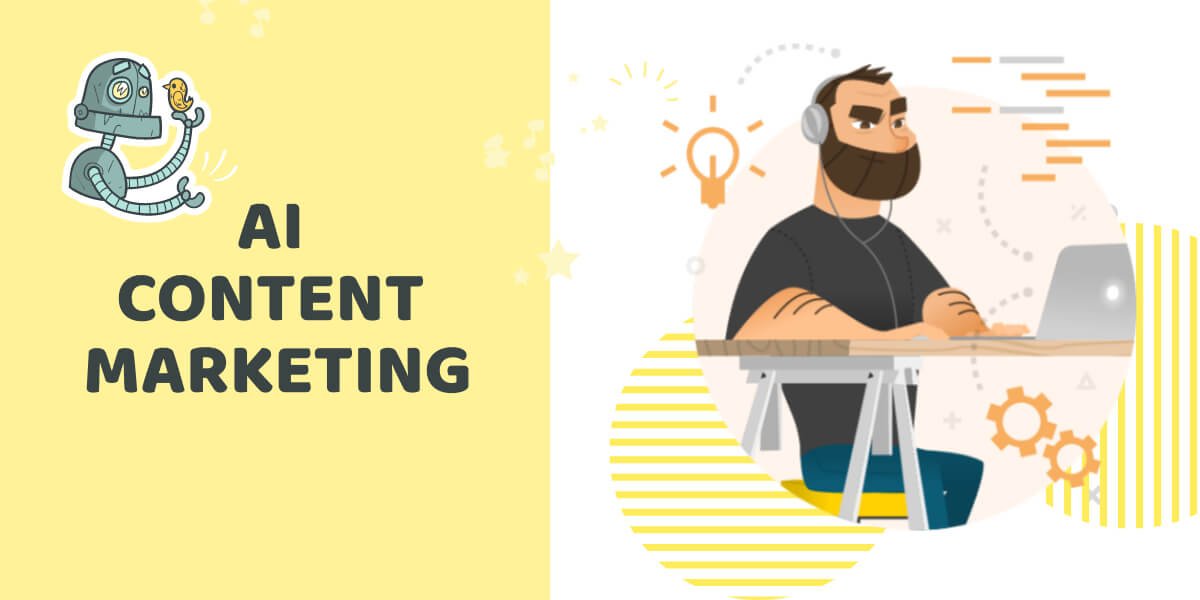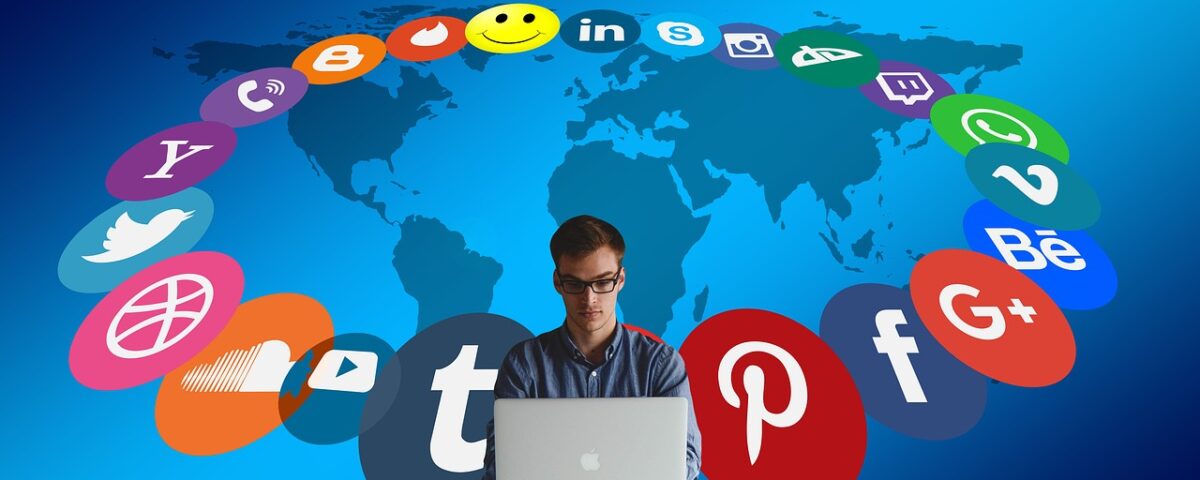
What Challenges Come with AI in Marketing?
August 22, 2024
Sprout Social and AI: The Ultimate Marketing Duo You Can’t Ignore
August 26, 2024In today’s fast-paced digital world, marketers are constantly looking for innovative ways to capture and retain the attention of their audiences. Enter Artificial Intelligence (AI) – the technology that has taken the marketing industry by storm. Over the last decade, AI has evolved from a futuristic concept into a practical tool that marketers can leverage to optimize their content strategies. But how exactly is AI transforming content marketing? What impact is it having on the way we create, distribute, and analyze content? Let’s dive in and find out.
AI’s influence on content marketing is profound. It’s no longer just about churning out blog posts or scheduling social media updates. AI is fundamentally changing the way content is created, personalized, distributed, and analyzed. From identifying trending topics to predicting audience behavior, AI empowers marketers to make data-driven decisions that lead to more effective campaigns. The days of relying solely on gut instinct are over; AI provides the insights needed to drive real results.
This blog explores how AI is revolutionizing content marketing, from ideation to driving customer engagement and clicks. We’ll cover the various ways AI is being used in content marketing, the challenges and ethical considerations, and what the future holds for this rapidly evolving field.
The purpose of this blog is to educate marketers on the role of AI in optimizing content creation, distribution, and performance analysis. Whether you’re a seasoned marketer or new to the field, understanding how to harness the power of AI is crucial for staying competitive in the digital age.

Understanding AI in Content Marketing
Definition of AI
Before diving into the specifics, let’s start with the basics: What is AI? Artificial Intelligence refers to the simulation of human intelligence in machines designed to think and learn like humans. In the context of content marketing, AI can analyze vast amounts of data, identify patterns, and make decisions that optimize marketing strategies. It’s like having a super-smart assistant who never sleeps, constantly working to improve your content marketing efforts.
Historical Context
AI’s journey in the marketing world didn’t happen overnight. The roots of AI in marketing trace back to the early 2000s when basic algorithms were used for search engine optimization (SEO) and email marketing automation. Fast forward to today, and AI has become a sophisticated tool that drives nearly every aspect of content marketing. Early AI tools were limited in scope, focusing mainly on automating repetitive tasks. However, the AI technologies we see today, such as machine learning and natural language processing (NLP), have advanced significantly, allowing for more complex and nuanced applications.
Types of AI in Content Marketing
AI in content marketing comes in various forms, each with its unique capabilities:
-
Machine Learning: A type of AI that enables systems to learn from data and improve over time without being explicitly programmed. In content marketing, machine learning is used to analyze audience behavior and predict future trends.
-
Natural Language Processing (NLP): This technology allows AI to understand and generate human language. NLP is used in content creation, customer service chatbots, and sentiment analysis.
-
Predictive Analytics: AI tools that analyze historical data to predict future outcomes. Predictive analytics is crucial for targeting the right audience at the right time with the right content.
-
Content Generation Tools: AI-powered platforms that create content, such as blog posts, social media updates, and video scripts. These tools, like GPT-4 and Jarvis, are becoming increasingly sophisticated, capable of generating human-like text.

AI-Driven Content Ideation and Creation
AI-Powered Topic Research
One of the biggest challenges in content marketing is identifying the right topics that will resonate with your audience. This is where AI shines. AI-powered tools like BuzzSumo, SEMrush, and Ahrefs analyze vast amounts of data to identify trending topics and keywords. These tools can uncover what your target audience is talking about, allowing you to create content that is both relevant and timely. By leveraging AI, marketers can stay ahead of the curve and ensure their content is always aligned with the latest trends.
Content Generation
Gone are the days when content creation was a time-consuming process that required hours of brainstorming and writing. AI has changed the game by making content generation faster and more efficient. Tools like GPT-4, Jarvis, and Copy.ai can generate high-quality content in a matter of minutes. Whether it’s blog posts, social media content, or video scripts, AI can handle it all. What’s even more impressive is the ability of these tools to generate content that is personalized and tailored to specific audience segments. This level of customization was once only possible through manual effort, but AI makes it scalable.
Personalization at Scale
Personalization is key to successful content marketing. Today’s consumers expect content that speaks directly to their needs and interests. AI enables marketers to deliver on this expectation by creating personalized content at scale. By analyzing user data, AI can segment audiences and generate content that is tailored to each group’s preferences. For example, an e-commerce brand can use AI to send personalized product recommendations to different customer segments, increasing the likelihood of conversions. The ability to deliver personalized content on a large scale is a game-changer for marketers.
Case Studies of Successful AI-Driven Personalized Campaigns
To illustrate the power of AI in personalization, let’s look at some real-life examples:
-
Netflix: Netflix uses AI to analyze viewing habits and recommend content to users. This personalized approach has been a key factor in the platform’s success.
-
Spotify: Spotify’s AI-powered recommendation engine creates personalized playlists for users based on their listening history. This has helped Spotify retain its user base and keep engagement high.
-
Amazon: Amazon uses AI to recommend products based on users’ browsing and purchase history. This personalized shopping experience has made Amazon one of the most successful e-commerce platforms in the world.

Enhancing Content Distribution and Optimization
AI in Content Distribution
Creating great content is only half the battle; distributing it effectively is equally important. AI plays a crucial role in optimizing content distribution across various channels, such as social media, email marketing, and more. Tools like HubSpot, Buffer, and Hootsuite use AI to determine the best times to post content, ensuring maximum reach and engagement. These tools analyze data from past campaigns to identify patterns and make recommendations for future content distribution. By leveraging AI, marketers can ensure their content reaches the right audience at the right time.
Predictive Analytics for Targeting
Targeting the right audience is essential for the success of any content marketing campaign. AI-driven predictive analytics tools help marketers identify the most promising audience segments and tailor content accordingly. Platforms like Salesforce Einstein use predictive analytics to analyze user behavior and predict which content will resonate with specific segments. This enables marketers to create highly targeted campaigns that drive better results.
SEO Optimization
Search engine optimization (SEO) is a critical component of content marketing, and AI is making it more efficient and effective than ever before. AI-powered SEO platforms like SurferSEO, Clearscope, and RankBrain analyze search engine algorithms and user behavior to optimize content for search engines. These tools can suggest keywords, optimize on-page elements, and even predict how well content will perform in search rankings. By using AI for SEO, marketers can improve their content’s visibility and drive more organic traffic.
![]()
Measuring and Analyzing Content Performance with AI
Real-time Analytics
In today’s fast-paced digital environment, waiting days or even hours for analytics reports is no longer viable. AI’s ability to provide real-time insights into content performance is a game-changer. AI-driven analytics dashboards give marketers instant access to data, allowing them to make quick adjustments to their content strategies. Whether it’s tracking engagement metrics, monitoring conversion rates, or analyzing audience demographics, AI provides the tools needed to stay on top of content performance.
Sentiment Analysis
Understanding how your audience feels about your content is crucial for refining your marketing strategy. AI-powered sentiment analysis tools like MonkeyLearn and Lexalytics can gauge audience sentiment by analyzing social media mentions, comments, and reviews. These tools use NLP to understand the context and tone of the text, providing insights into how your audience perceives your brand. By monitoring sentiment, marketers can identify potential issues early and adjust their strategies to improve audience perception.
ROI Tracking and Reporting
At the end of the day, content marketing is all about driving results. AI tools that measure the ROI of content marketing efforts are invaluable for demonstrating the value of your campaigns. Platforms like HubSpot, Marketo, and Google Analytics, enhanced with AI, can track conversions, calculate ROI, and generate detailed reports. These insights help marketers understand which content is driving the most value and where to allocate resources for future campaigns.
Future Trends in AI-Driven Content Marketing
The Rise of AI Content Creators
The future of AI in content marketing looks promising, with AI content creators expected to play a more prominent role. Advances in AI technology are enabling machines to generate more complex and creative content. In the next 5-10 years, we can expect AI to create not only text but also visual and multimedia content that rivals human creativity. This shift will open new opportunities for marketers to leverage AI in innovative ways.
Voice and Visual Search Optimization
As voice and visual search technologies continue to evolve, AI will play a crucial role in shaping content strategies. Optimizing content for voice search involves understanding natural language queries and providing concise, relevant answers. For visual search, AI can help identify and categorize images to improve search results. Marketers need to adapt their content strategies to accommodate these emerging search technologies.
AI and Augmented Reality (AR)
The integration of AI with augmented reality (AR) is set to transform content marketing. AI-powered AR experiences can create interactive and immersive content that engages users in new ways. Brands are already experimenting with AI and AR to provide virtual try-ons, interactive ads, and enhanced product experiences. As AR technology advances, we can expect to see more innovative and engaging content experiences.
Conclusion
Summary of Key Points
AI is revolutionizing content marketing at every stage, from ideation to performance analysis. It enhances content creation by identifying trends and generating personalized content, optimizes distribution through predictive analytics, and provides valuable insights through real-time analytics and sentiment analysis. However, marketers must be mindful of the challenges and ethical considerations associated with AI, such as over-reliance, data privacy, and bias.
Call to Action
To stay competitive in the digital landscape, marketers should embrace AI tools and strategies. By leveraging AI for content ideation, creation, distribution, and analysis, you can enhance your marketing efforts and achieve better results. Explore AI tools and resources to get started on your AI-driven content marketing journey.
Final Thought
While AI offers incredible efficiency and insights, it’s essential to maintain a balance between AI-driven precision and human creativity. The future of content marketing lies in blending the best of both worlds to create content that is both data-informed and deeply engaging.


